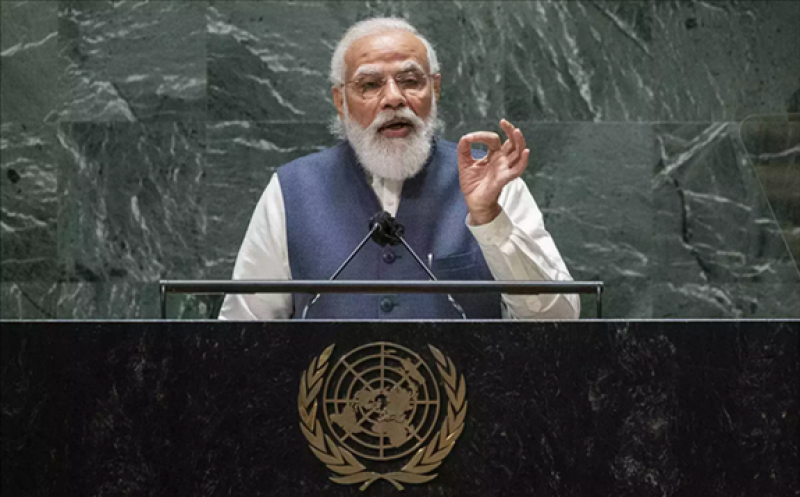India at the first leader-level meeting on energy under the UN General Assembly in 40 years has made commitments to increase renewable energy installed capacity to 450 GW by 2030 and develop and implement a National Hydrogen Energy Mission to scale up annual green hydrogen production to 1 MT by 2030.

Also, it announced to begin a Production Linked Incentive Scheme to add 10 GW solar PV manufacturing capacity by 2025.
India's announcements were among new multi-billion-dollar commitments made on Friday by countries to increase renewables and access to electricity and clean cooking technologies at the critical summit aimed at boosting efforts to reduce the ranks of nearly 800 million people living in energy poverty while setting the world on a trajectory towards net-zero-emissions by 2050.
India announced to create 15 MMT production capacity of compressed biogas by 2024, achieve 20 per cent ethanol blending in petrol by 2025-26 and enhance energy efficiency in agriculture, buildings, industry and transport sectors and promote energy-efficient appliances and equipment to reduce country's emissions intensity of GDP by 33-35 per cent over 2005 levels by 2030.
More than $400 billion in new finance and investment was committed by governments and the private sector during the UN High-level Dialogue on Energy.
Over 35 countries -- ranging from Small Island Developing States to major emerging and industrialized economies -- made significant new energy commitments in the form of Energy Compacts.
Additionally, several new partnership initiatives were announced, aiming to provide and improve access to reliable electricity to over a billion people.
The new commitments would result in large increases in the installed capacity of renewable energy and significant improvements in energy efficiency around the world -- leading to hundreds of new renewable energy facilities and the creation of millions of new green jobs.
The energy summit took place as world leaders grapple with the critical urgency to keep the 1.5 degrees temperature target of the Paris Agreement within reach, and cut emissions by 45 per cent by 2030, while closing the energy access gap and providing more than one billion people who currently rely on harmful fuels with clean cooking solutions.